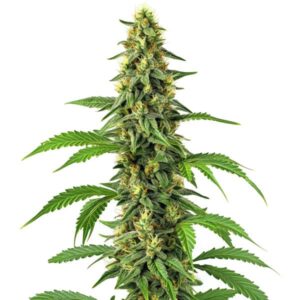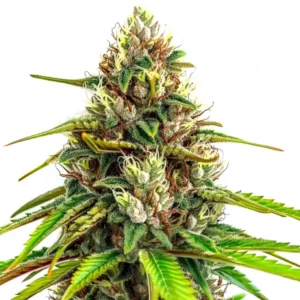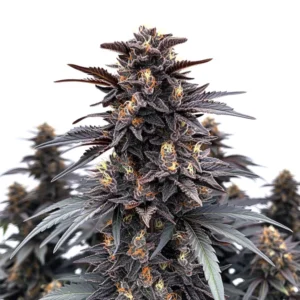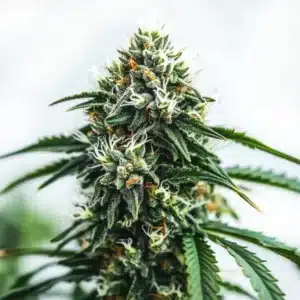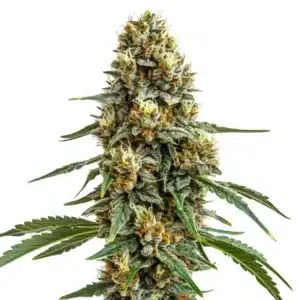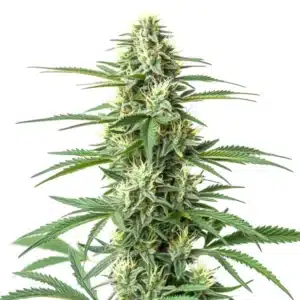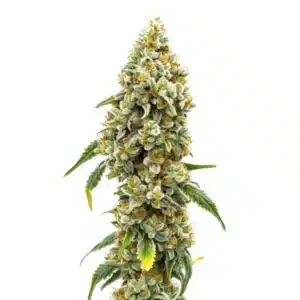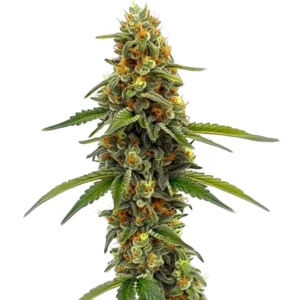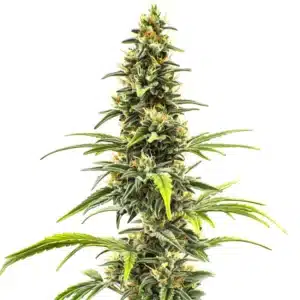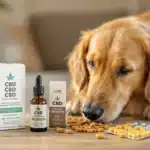
Is Cannabis Safe for Pets?
As cannabis products gain popularity, pet owners are increasingly curious about their effects on our furry friends. One major question arises: is cannabis safe for pets? Understanding how cannabis components, particularly tetrahydrocannabinol (often abbreviated as THC), interact with animals is crucial for any responsible pet owner.
Many people often rely on cannabis for various therapeutic uses, but it is vital to consider the safety of our pets when exploring these options. By understanding the nuances of how these substances interact with animal biology, we can make informed decisions that prioritize our pets’ well-being.
Recommended Strains
24k Gold
|
|
THC | 19% - 22% (Medium) |
|
|
Type | Feminized |
|
|
Yield | High |
|
|
Phenotype | 60% Indica / 40% Sativa |
24k Gold Autoflower
|
|
THC | 18% - 24% (Medium) |
|
|
Type | Autoflowering |
|
|
Yield | Medium |
|
|
Phenotype | 40% Indica / 60% Sativa |
What Is THC?
THC, or tetrahydrocannabinol, is the primary psychoactive component found in cannabis. It’s well-known for producing the euphoric sensations commonly associated with marijuana use. However, the effects of THC can differ significantly across various species, including our beloved pets.
While humans may appreciate the mellowing effects of THC in moderation, pets, particularly dogs and cats, may react quite differently. Their unique physiology can cause them to be more sensitive to THC, making even small amounts potentially harmful or distressing.
The Risks of THC for Pets
Understanding the potential risks of THC ingestion is crucial for pet owners. Pets may be exposed to THC through various means, including inhaling smoke, consuming edibles, or even absorbing it through their skin. Pets are particularly vulnerable if cannabis products are left unattended within reach.
Here are some of the common risks associated with THC exposure in pets:
- Vomiting
- Diarrhea
- Incoordination or staggering
- Excessive drooling
- Increased heart rate
- Confusion or anxiety
If your pet exhibits any symptoms following potential THC exposure, it’s essential to consult a veterinarian promptly. Swift treatment can often reduce the severity of any adverse effects and can sometimes be life-saving.
Promos & Deals
Alternatives to THC for Pets
While THC is not safe for pets, there are cannabis-derived options that may provide health benefits without the psychoactive effects. One such alternative is cannabidiol, commonly referred to as CBD. Unlike THC, CBD is non-psychoactive and has gained popularity for its potential therapeutic effects.
Many pet owners find that CBD can effectively alleviate a variety of issues, including anxiety, joint pain, and seizure disorders, without the risks attached to THC. You can find CBD products tailored specifically for pets in forms like treats, oils, or capsules, making it easy to incorporate into your pet’s routine.

Choosing the Right CBD Products
When considering CBD as an option for your pet, there are several important factors to keep in mind to ensure your choice is safe and effective:
- Always check for third-party lab testing to confirm the product’s safety and potency.
- Make sure the product is free of THC or contains it within safe legal limits.
- Consult with your veterinarian to determine the appropriate dosage based on your pet’s size, age, and specific needs.
Many pet owners share positive experiences using CBD, especially for alleviating anxiety and managing pain. It’s important to remember, however, that each pet is unique, and what proves beneficial for one may not work the same way for another.
Common Myths and Misconceptions
Many misconceptions surround the use of cannabis for pets. A prevalent myth is that if THC is safe for humans, it must be equally safe for pets. This notion can lead to significant risks for our animal companions, who process substances differently than humans do.
Another misunderstanding is that pets can handle comparable doses to those used by people. In reality, pets metabolize substances at different rates, making it crucial to rely on carefully formulated products designed explicitly for pets. Safety should always be your top priority when considering any cannabis derivative.
Consulting a Veterinarian
For pet owners intrigued by cannabis options, taking the time to consult with a veterinarian is vital. A knowledgeable veterinarian can recommend safe products, appropriate dosages, and help assess your pet’s unique health considerations.
In addition, being informed on local cannabis regulations concerning pet products can provide insight and help you stay within the bounds of local laws, thereby avoiding potential legal troubles.

What to Do If Your Pet Consumes THC
If you suspect that your pet has ingested THC, it is crucial to stay calm and act swiftly. Begin by assessing their symptoms. These can range from mild signs like lethargy to more serious indications such as difficulty walking or extreme disorientation.
Immediately contact your veterinarian or an emergency veterinary clinic for guidance. They may ask you questions about your pet’s condition and can advise whether a visit is necessary. In certain situations, the veterinarian may recommend inducing vomiting or administering activated charcoal to mitigate THC’s effects.
Preventive Measures
Taking steps to prevent accidental THC exposure is key to keeping your pets safe. Here are some practical measures to consider:
- Store all cannabis products securely out of your pet’s reach.
- Dispose of any leftover cannabis items responsibly to avoid accidental exposure.
- Educate family and friends on the potential risks to pets posed by cannabis products.
By implementing these preventive strategies, pet owners can significantly reduce the chance of unintentional exposure and promote a healthier, happier environment for their furry companions.
While THC poses risks for pets, alternatives like CBD offer options that can deliver various health benefits without the same dangers. Pet owners should always take a cautious and informed approach when considering new treatments or products for their furry friends.
Being a responsible pet owner involves understanding what your pet consumes and its potential impacts. Staying well-informed about cannabis effects on pets not only keeps them safe but also fosters a nurturing and caring relationship.
FAQs
Is any amount of THC safe for pets?
No, any amount of THC can lead to unwanted effects in pets. It’s best to completely avoid any products containing THC for animals.
What should I do if my pet accidentally consumes THC?
If you believe your pet has ingested THC, reach out to your veterinarian or an emergency animal clinic immediately. They will provide guidance based on your pet’s specific situation.
Are there safer alternatives to THC for pets?
Yes, CBD is a non-psychoactive compound that may be beneficial. It’s important to choose products formulated specifically for pets to ensure safety and effectiveness.
How can I tell if my pet is affected by THC?
Signs that your pet might be impacted by THC include vomiting, lethargy, difficulty maintaining balance, and overall disorientation. If you notice any of these signs, seek veterinary assistance promptly.
Can I use human cannabis products for my pet?
No, it’s unsafe to use human cannabis products on pets. They can contain substances harmful to animals. Always select pet-specific formulations for optimal safety.


